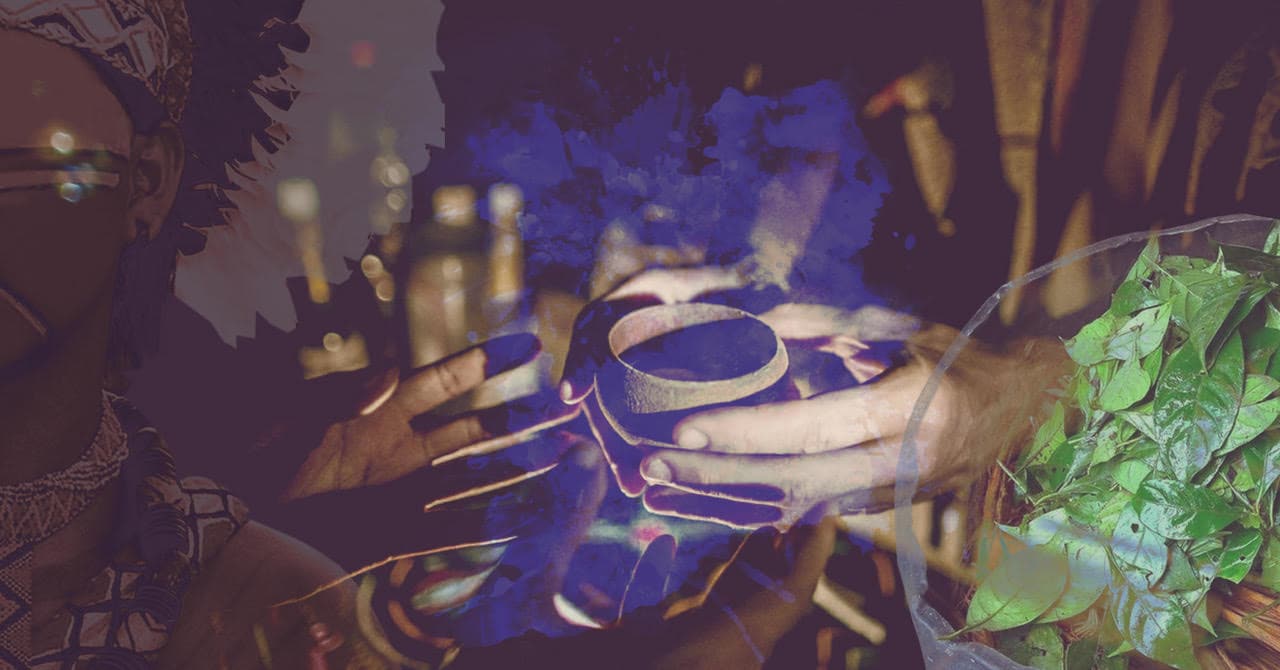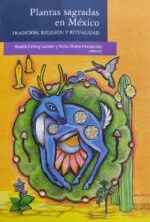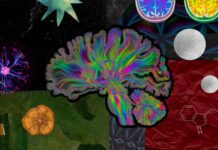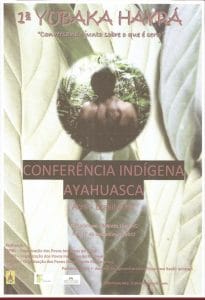 In December 2017, indigenous Brazilian ayahuasqueiros from the north-western State of Acre came together at the Yubaka Hayrá—the inaugural Indigenous Ayahuasca Conference, in the Puyanawa Indigenous Territory, in the Municipality of Mâncio Lima. It was a conference “by Indians for Indians,” according to Francisco Pyãko Ashaninka, coordinator of the Organization of Indigenous Peoples of the Juruá River (OPIRJ), promoting the “wisdom of the elders,” as described by Biraci Brasil, as Chief Biraci Nixiwaka Yawanawá is known, seeking to address questions relating to the ancestral drink common to all of them. Apolimas-Arara, Ashaninkas, Huni Kuins, Jaminawas, Jaminawas-Arara, Kuntanawas, Nawas, Noke Kois, Nukinis, Puyanawas, Shanenawas, Shawãdawas and Yawanawás held meetings for three days, with two cups of ayahuasca on the debating table, available for consultation for anyone who so desired. It was the first time, at least it is known, that so many ethnicities gathered to discuss their sacred drink.
In December 2017, indigenous Brazilian ayahuasqueiros from the north-western State of Acre came together at the Yubaka Hayrá—the inaugural Indigenous Ayahuasca Conference, in the Puyanawa Indigenous Territory, in the Municipality of Mâncio Lima. It was a conference “by Indians for Indians,” according to Francisco Pyãko Ashaninka, coordinator of the Organization of Indigenous Peoples of the Juruá River (OPIRJ), promoting the “wisdom of the elders,” as described by Biraci Brasil, as Chief Biraci Nixiwaka Yawanawá is known, seeking to address questions relating to the ancestral drink common to all of them. Apolimas-Arara, Ashaninkas, Huni Kuins, Jaminawas, Jaminawas-Arara, Kuntanawas, Nawas, Noke Kois, Nukinis, Puyanawas, Shanenawas, Shawãdawas and Yawanawás held meetings for three days, with two cups of ayahuasca on the debating table, available for consultation for anyone who so desired. It was the first time, at least it is known, that so many ethnicities gathered to discuss their sacred drink.
The proposed agenda was broad and included the importance of ayahuasca as the basis of the indigenous cultures of Acre; exchanges and dissemination of the indigenous medicine within Brazil and abroad; traditional songs; sustainable management of the vine and its leaves; the CONAD resolution of 01/2010 (National Advisory on Drug Policies, a body attached to the Ministry of Justice that regulates the religious use of ayahuasca in Brazil), and its implications in the circulation of traditional healers and remedies; and the process of patrimonialization of ayahuasca. Such topics were conducive towards a debate about the “reality of the spirituality of ayahuasca,” as per Biraci Brasil.
For our civilizations, sacred medicine has been the source of our knowledge, identity and culture since the creation of the first man, so it is always present in our songs and stories, as it is part of our ancient relationships between peoples. The indigenous ayahuasqueira nations have had diplomatic and spiritual relationships for millennia, which is why the First Indigenous Ayahuasca Conference (Yubaka Hayrá) can be considered an important moment in contemporary indigenous history. (Daiara Tukano, 2017)
Within the recommendations made in his final document, called the “Letter of Recommendations,” is the desire for a cohesive debate between the indigenous peoples of Acre by proposing guidelines to be discussed in each village, so that at the next conference these themes receive their due attention. It is recommended that:
Each group should position itself collectively, and in their internal meetings they should reflect on the issues listed below:
· How traditional medicine was used in the past, and the transfer and protection of knowledge in the internal indigenous context.
· How traditional medicine is being used nowadays, and the transfer and protection of knowledge in the current context; how do they feel about the observed changes in traditional uses.
· How current exchanges with non-indigenous people are perceived and how knowledge is being protected; considerations about ways of protecting knowledge of traditional medicines considering the changes resulting from this expansion.
· Possibilities and limits in sharing traditional knowledge with non-indigenous people; reflecting on the extent to which it is beneficial or threatening to transmit this knowledge to non-indigenous people and what form dialogue and external sharing will take. (Letter of Recommendations Brazil, 2017)
As Siã Kaxinawá, Huni Kuin leader, said in his opening speech, there is a call to responsibility for the ayahuasqueiro people from “time immemorial,” as described by Biraci Brasil, to protect the knowledge they have held since ancient times.
If you are patient enough to understand and listen, we can still make a contribution… We may be in the numerical minority but we are the owners of a civilization, of knowledge the size of this rainforest. Look at the size of the Amazon territory, look at how much green there is above this land; well, we are the ones who best know it. These men here, who Congress doesn’t respect, that no authority in the world respects, but who want to come here and use ayahuasca, rapé, sananga, all of our patented, studied medicine. And what about us, aren’t we the owners? It was born from us, and don’t we still live and use it to this day? (Biraci Brasil, 2017)
Context
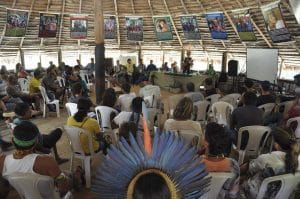
This conference stands out for being the first time that these people, who have ayahuasca in their heritage and at the core of their way of life, have come together to discuss key issues, such as its use in villages and its management, and also issues of interface with non-indigenous people, including the circulation with medicines inside and outside of Brazil and the patrimonialization of ayahuasca in Brazil, which has been discussed within the framework of the National Historical and Artistic Heritage Institute (IPHAN) since 2008. The non-indigenous people present were supporting, registering or serving as “informants,” clarifying the points made by indigenous people: it really was a conference “by them and for them.”
The decision to look at the foundations of the Recommendation Letter demonstrates the maturity developed by the Brazilian indigenous and Acrean movement as they understand that what is needed is community consulting and a unified position. Not that anyone is under the illusion of uniqueness, knowing full well that the indigenous population of Acre is roughly 20,000, and that all these ethnic groups have ayahuasca in their spiritual and cultural references.
The event was put on by the Juruá Indigenous Organizations (Organization of Indigenous Peoples of the Juruá River (OPIRJ), Organization of Indigenous Peoples of Tarauacá (OPITAR), Organization of Indigenous Peoples of Rio Envira River (OPIRE) and Kaxinawá Rubber Tappers Association of Rio Jordão (ASKARJ), with support from the Juruá Regional Coordination of FUNAI and the Federal Institute of Acre (IFAC); but, we can see its catalyst in the Open Letter from the Indigenous Acrean Peoples to the 2nd Global Ayahuasca Conference (Nixi Pae, Huni Pae, Uni Pae, Kamarãbi, Kamalanbi, Shuri, Yajé, Kaapi…) that took place in 2016 in Rio Branco in the State of Acre. In this document, they not only demanded more participation in world discussions about this drink, insisting on recognition of their place of importance as caretakers and scholars of these sacred plants, but they also revealed the internal agreements that took place in the First Indigenous Ayahuasca Conference. This alignment between peoples, so powerful thanks to its diversity and to the array of ancestralities it brings together, can bring significant change to the global and Brazilian ayahuasqueiro field.
“Yubaka Hayrá” are words from the Hatxá Kuin language, which is derived from Huni Kuin; translated they mean “talking together about what is correct.” They were used as the name of the First Indigenous Ayahuasca Conference and translate the essence of its spirit. Families gathered together, reflecting about what is right in these mutated contexts, about that which is most dear to them; it is not just about a drink or a couple of sacred plants, it is what these things represent to their cultures, and just how much this medicine is a part of who they are.
The Youtube channel Crônicas Indigenistas (Indigenist Chronicles) features some of the talks from the Yubaka Hayrá. They are registers of fundamental positions for those interested in hearing directly from the protagonists. It is also possible to hear on the channel Crônicas Indigenistas – Música Indígena (Indigenous Music), recordings made during the opening and closing ceremonies of the conference. They are traditional songs and that which is being called “haux music,” term used in the film Xinã Bena Beisikit Xarabu by Dedê Maia, shown alongside episodes from the series Nokun Txai – Nossos Txais, directed by Sérgio de Carvalho during the Yubaka Hayrá, to name indigenous songs accompanied by guitar and other instruments. The video “Tarondê – Canto Yawanawá,” for example, is a selection of images from the conference and a live recording from the closing ceremony.
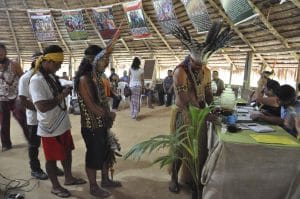
It was truly a large-scale ceremonial event, and could have been no different, due to the degree of sacredness which ayahuasca holds in the indigenous communities that were represented. There is a great deal of accumulated knowledge in the “school of everyday life, with our family,” in the words of Biraci Brasil: “I need no scientific writings to tell me when it began, because my tale says that the uni was born of the heart of our King; above the heart of our King, of the human body” (Biraci Brasil, 2017).
This text is intended as a message, a register from someone who witnessed the potential of what happened and is still to come. I recently wrote a more affectionate text about Yubaka Hayrá, and I go back to him to affirm how the First Indigenous Ayahuasca Conference helped me to find meaning in what I have been studying, to understand a little of the dimension of ayahuasca within these communities, within their modes of life; and, above all, of how important it is to recognize and safeguard these cultural references, to guarantee the exercise of the indigenous people’s human rights to culture, memory, and their cultural identities. What you read and study about ayahuasca is important, but what you live is deeply transformative, and Yubaka Hayrá gave me this opportunity. As Professor Domingos Bueno Silva summarized in a text published on the blog Crônicas Indigenistas, the Yubaka Hayrá “opened up the space so that which is most fundamental about sacred indigenous medicine could make itself known; the capacity to transcend the barriers of human narrow-mindedness.” Let’s wait, therefore, for the next steps, knowing that in the Second Indigenous Ayahuasca Conference, set to take place in August of this year, further barriers are sure to be transcended.
———
A first version of this text appeared in Portuguese at http://www.bialabate.net/news/1a-conferencia-indigena-da-ayahuasca-yubaka-hayra-no-acre-a-sabedoria-dos-antigos in July 9, 2018.
Take a minute to browse our stock:
Did you enjoy reading this article?
Please support Chacruna's work by donating to us. We are an independent organization and we offer free education and advocacy for psychedelic plant medicines. We are a team of dedicated volunteers!
Can you help Chacruna advance cultural understanding around these substances?


